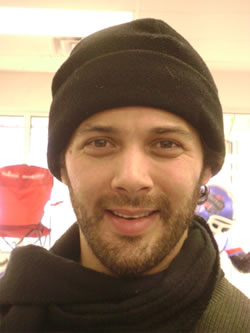|
The most common trap writers who incorporate research into their narrative can fall into is that their story is so laden with factual information that a loss of content control takes place and it becomes a story of ideas instead of people expressing those ideas through experience. I know this all too well because I just completed my first novel, and it required a vast amount of research.
Fiction writers can easily write themselves into a corner. For the writer of the researched story it almost inevitably happens when the details cease to be attached to characters, particularly when writing historical fiction, which is what I have been engaged in for a number of years. My manuscript reached over 1,000 pages at one point. Of the 450 pages I cut, the majority were sections where I had fallen in love with my research. I had to accept that while I am fascinated by every aspect of the early days of the House Un-American Activities Committee (HUAC), Old Hollywood, and late 1940s anti-Semitism in Los Angeles, readers care about people affected by history more than historical facts.
|


